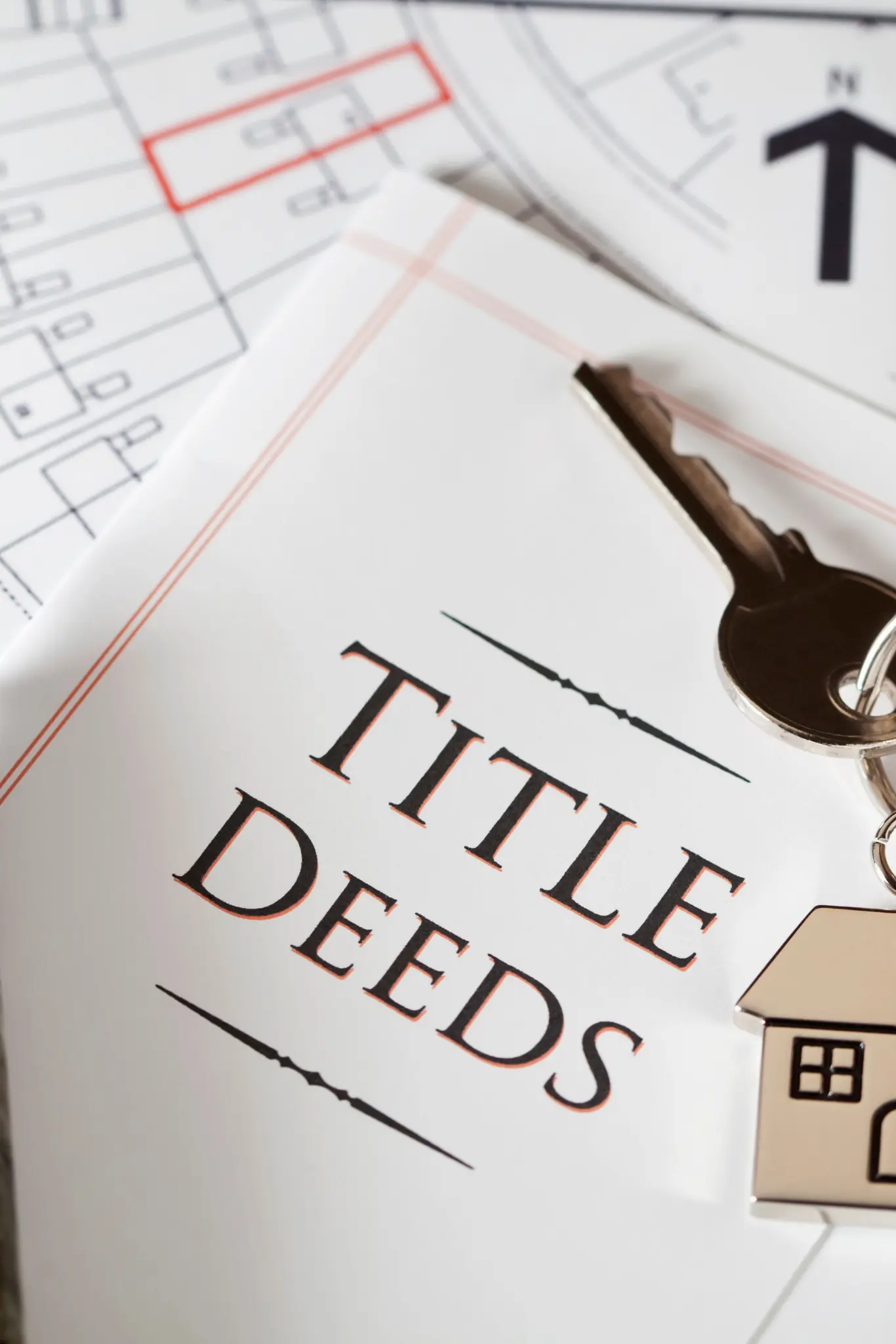20,000+ Central VA closings, two local offices, and underwriters you actually know.
Fast online title quote, ALTA-compliant statements, and escrow services without the stress.
We close everything from starter homes to schools, churches, gyms, and day cares backed by the protection of title insurance in Virginia.
Protecting home buyers and lenders in Chesterfield and surrounding areas since 1996!
Buying a home shouldn’t mean worrying about old liens, recording mistakes, or deed fraud. Our home title insurance protects buyers and lenders across Central Virginia with a one-time title insurance policy that defends your ownership and covers eligible legal costs if a past defect surfaces.
Home title insurance is a one-time title insurance policy you buy at closing to protect against problems from the property’s past. Many of these issues might not be discovered until well after the property is in your hands, including things like recording errors, unpaid liens, missing heirs, or deed fraud that didn’t show up before you signed.
If a covered defect surfaces later, the policy can pay legal defense costs and covered losses up to the policy amount.
There are two policies options:
Lender’s title insurance is required with most mortgages. This type of policy protects the bank’s interest in the home.
The other is owner’s title insurance. While it is optional, it is strongly recommended because it protects your equity and legal rights for as long as you own the property.
Standard home title insurance policies focus on pre-closing defects. Many buyers choose an enhanced (ALTA Homeowner’s) owner’s policy for added protections, including certain post-policy forgery/ID theft claims, some permit/encroachment issues, and built-in inflation protection.
When you meet with us for title insurance for homes, we’ll explain options and endorsements to help you choose what fits.
Premiums are paid once at closing. Ask about simultaneous issue pricing (when purchasing owner’s + lender’s together) and reissue credits on refinances or when a recent prior policy exists.
Since 1996, our local team has been the region’s trusted source for property title insurance.

We’ve seen the dangers of skipping on a residential title insurance policy too many times. Here’s a recent story of someone who decided they didn’t need it and how that decision came back to cause many issues that would have been easily resolved if they had purchased title insurance at the beginning.
Eight months after closing on a Chesterfield home, “Maria” decides to refinance. The title search turns up a contractor’s lien from work done before she bought the home. Unfortunately, it was mis-indexed in public records, so it didn’t appear initially. The lienholder demands $17,000 plus fees to release it.
Because Maria did not have home title insurance, she was forced to hire an attorney and fight the claim with cash out of her own pocket.
Now if Maria had opted for owner’s title insurance all she would have needed to do was file a claim. The insurer provides covered legal defense and, if the claim is valid under the policy, pays the covered amount to resolve it.
That’s a lesson that all people looking to buy a home throughout Central Virginia can learn from. Owner’s title insurance turns an expensive problem into a covered claim.
So, if you’ve been searching for home title insurance, owner’s title insurance, or a closing agent near me, our team will walk you through options and make sure your policy actually fits your situation, so you don’t get stuck with the situation that hit Maria.
When you buy a home, you’re also inheriting its paper trail. Unfortunately, this paper trail often includes recording errors, unreleased liens, boundary mix-ups, even fraud that predates your ownership.
Residential title insurance wraps that past in a single title insurance policy so a surprise doesn’t become your bill. With owner’s title insurance, you get protection for your equity and covered legal defense for as long as you own the property.
Property title insurance covers you by:
Ask about simultaneous issue pricing (when you buy owner’s + lender’s title insurance together), any reissue credit (if there’s a prior policy on the property), and whether an enhanced (ALTA Homeowner’s) owner’s policy makes sense. That is especially if you plan improvements like fences, sheds, or additions.
On homes with older boundaries or outbuildings, we’ll discuss survey options so you know when a new survey or a survey endorsement is worth it. All the while, we protect your funds with verified escrow/wire instructions.
From our Chesterfield office and Colonial Heights office, we provide title insurance in Virginia by issuing owner’s title insurance and lender’s title insurance for purchases and refinances. We handle the title search, prepare your title insurance policy, and coordinate settlement for the communities below.
Have questions about home title insurance? Call 1 (877) 685-6429 and we’ll give you the extra confidence you need to make that big purchase.